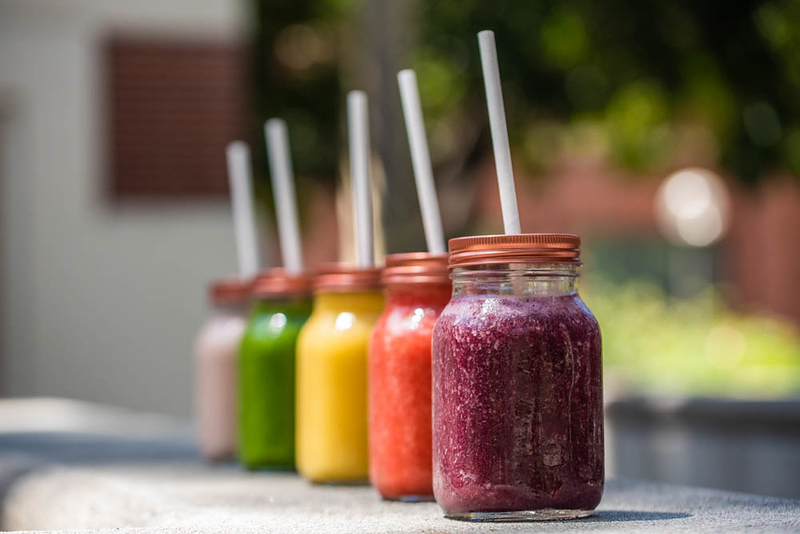New cafe to replace Nekter

(Photo courtesy of Gabrielle Ronson)
Nestled between the School of Architecture and the Roski School of Fine Arts lies what used to be the Nekter Juice Bar. Now, it’s a USC-owned and operated cafe called C&G Juice Co. where students can enjoy a revamped menu of healthy bowls. The soft opening for the cafe was Aug. 22.
Similar to Nekter, C&G Juice Co. will serve juices, smoothies and açai bowls. According to Garry Marschall, senior associate director of USC Hospitality, the team felt they could create a space that serves healthier and cheaper options on the go.
“We were with Nekter for five years and believed that we could do this ourselves and do it better,” Marschall said. “I was approached about this idea before looking at the contract and when it would end … and then we decided that we should look at when this [new cafe] would be viable for us.”
Marschall explained that although the products will be similar, USC Hospitality is working on elevating C&G Juice Co.’s ingredients and efficiency. He said the University used to purchase frozen açai packs from Nekter, which would take longer to blend. The new cafe will instead use products from the açai company Sambazon, which provides semi-frozen açai to make service quicker without compromising the texture or flavor.
“Instead of taking an açai bowl between three to five minutes to make because of all the blending, we are now able to do it in one to two minutes, so the speed of service will be much quicker with basically the same product,” Marschall said.
The menu isn’t finalized, but Marschall said ingredients in the cafe’s three main products range from vegetables like kale and spinach to fruits like pineapples and mangos. To develop their own signature drinks and smoothies, Marschall said the cafe received help from a research and development chef and the previous manager of Nekter.
He also said School of Architecture dean Milton Curry and Roski dean Lynn Kirk played a role in several taste tests, since the cafe will be located in their schools.
The restaurant will also partner with various companies to sell items that aren’t available at other food vendors on campus. USC Hospitality is collaborating with local company Positive Foods to provide fresh salads and meal replacements. The cafe will carry vegetarian and vegan options from Café Gratitude, an organic, plant-based food chain. According to Marschall, the cafe will also sell fresh roasted coffee from Intelligentsia Coffee and make its own orange juice.
Naaman Bautista, USC Hospitality’s food service assistant manager, said the cafe will also emphasize sustainability by selling glass mason jars that customers can bring back to refill their drinks with a one-dollar discount.
Those who bring their own reusable cups get a 25-cent discount. The cafe will also use paper straws instead of plastic ones.
“Right now, sustainability and affordability is our motto moving forward,” Bautista said. “It’s really important for the Trojan Family that all of the healthy, sustainable and affordable concepts are being met.”
In terms of pricing, Marschall said that the C&G Juice Co.’s costs are similar to Nekter’s and on average $3 cheaper than SunLife Organics, another bowl and smoothie store in the USC Village. Juices will range from $6.79 to $7.99, smoothies will be $7.89 and açai bowls will range from $9.99 to $11.99.
Cash transactions won’t be accepted at the cafe. Marschall said USC Hospitality analyzes transaction counts when looking at each unit, and the Nekter Juice Bar had the lowest number of cash transactions on campus.
Kris Klinger, assistant vice president of USC Hospitality, said he is not worried about the possible competition with SunLife Organics. Instead, the team is more focused on providing a convenient location for students to purchase healthier food options.
“We have açai bowls at Popovich Café, but besides that we don’t [have healthier options,]” Klinger said. “We look at competition as a great thing and that everyone has their own space to operate and work in. But [SunLife Organics] is less of a concern to us — it’s more important that we make sure that we’re meeting the needs of the students.”

